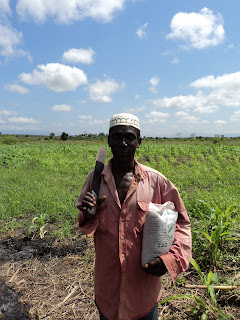its actually not as bad as you might think. but i might be saying this as one of the lucky ones that avoided strong waves of nausea, which is the PITS! after six days of being away from Kwakiliga, i was feeling rather guilty at my malaise and time spent indoors until it dawned on me i was tired. really tired. first, my lymph nodes started swelling and i had an outrageously sore throat (no amount of drinking, eating, or speaking was done without pain). second, i started waking up later than normal, but still climbing back into bed around 9:00 a.m. after being up for only an hour or two. third, i had numb headaches and annoying body aches (mostly below the waist). fourth, i developed a fever that rose 0.1 degrees every 10 minutes or so until i finally reached 101.9 and knew it was time to visit the doctor.
and that was when i fell in love with kwakiliga all over again. sarah ran through town asking people if they had rice and beans we could purchase so i would have food in my belly and, since news travels quickly, the town was already well aware of my condition and need for sustenance. so they practically led her from hotelini to hotelini, duka to duka, until one man in our farmer's group named Yuberi (who LOVES saying "andrea na sarah") took her to a duka and explained "andrea is sick! she needs food!" which resulted in a plate of food in an otherwise sparse town. and in my final few minutes of gathering my belongings before departing, i was approached by both hordes of little kids who were concerned as to my health and also Mzee Adamu (the sweet farmer who didn't know how many days were in a week), who not long ago offered Sarah some of his land so that she and her "husband" might stay indefinitely, and just yesterday offered to take me in and care for me. in fact, he seemed surprised i hadn't requested it already.
the "hospital" was at the former mission and consisted of several rooms, each of which you made a visit to without really knowing the purpose. reception? prognosis? diagnosis? i came armed with my own sterile needles just in case a blood test was necessary, but luckily the joint was generally quite clean. and the lab technician, though standing in a random hallway to draw blood samples, wore snazzy shoes ... which is a silly thing to reflect upon but a reliable means of gauging one's professionalism. ten minutes later, with a piece of paper written in scribbles none of us could understand (despite understanding the language) i reported back to room number two and was diagnosed with malaria ... and told not to look so happy when reporting to the doctor. smiles are not okay. its now been 18 hours since my first dose of medication and my fever went from 102.1 last night to 98.5 today ... and my biggest obstacle now is continuing to rest which, to anyone who knows me, is a challenge.


